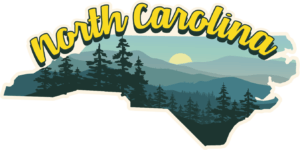This blog was last updated on January 16, 2026
North Carolina Sales Tax Nexus
Following the South Dakota v. Wayfair, Inc. Supreme Court decision, North Carolina issued a policy directive (SD-18-6) indicating that it would be enforcing the imposition of tax on remote sellers under N.C. Gen. Stat. § 105-164.8(b). This directive was later codified in Session Law 2019-6. However, effective July 1, 2024, North Carolina repealed the 200-transaction economic nexus threshold for remote sellers and marketplace facilitators. According to N.C. Gen. Stat § 105‑164.8, remote sellers and marketplace facilitators must collect and remit sales tax if their gross sales sourced to North Carolina exceed $100,000 in the previous or current calendar year. We have outlined the major points in North Carolina’s regulations below.
- Remote sellers: July 1, 2024
- Marketplace facilitators: July 1, 2024
Sales/transactions threshold:
$100,000
Measurement period:
Threshold applies to the previous or current calendar year.
Included transactions/sales:
Retail sales of tangible personal property delivered into the state.
When You Need to Register Once You Exceed the Threshold:
Next transaction.
Summary: A remote seller sells items sourced to North Carolina, but has neither a physical presence in the state, nor any other legal requirement to register in North Carolina for sales and use tax purposes. Remote sellers are required to collect North Carolina sales tax if their sales into the state exceed $100,00 in the current or previous year.
Remote sellers not meeting the above-outlined thresholds are not considered to be engaged in business in North Carolina for sales and use tax purposes and are not required to collect and remit sales tax. The exception for small sellers applies to remote sellers only. Sellers with physical presence or another legal requirement to collect and remit in North Carolina should continue to collect and remit normally.
Marketplace facilitators and marketplace sellers that have gross sales exceeding $100,000 sourced to North Carolina in the previous or current calendar year must collect state sales tax. Marketplace facilitators are considered the retailer of each marketplace-facilitated sale they make and are liable for collecting and remitting the sales and use tax on all such sales.
Marketplace facilitators not meeting the above-outlined thresholds are not considered to be engaged in business in North Carolina for sales and use tax purposes and are not required to collect and remit sales tax. The exception for small sellers does not apply to marketplace sellers with a physical presence in North Carolina or with another legal requirement to collect and remit sales and use tax in North Carolina.
North Carolina Sales Tax Resources: Contact our team of experts for more information on the sales tax nexus in North Carolina. Additionally, check out our interactive sales tax nexus map for real-time updates on each state.
